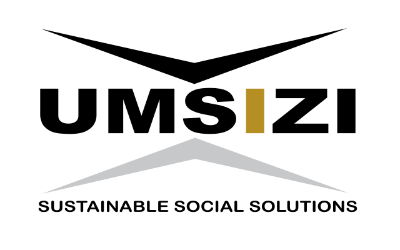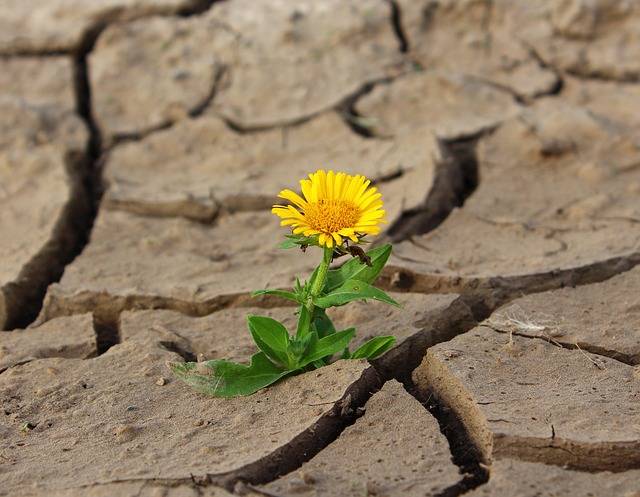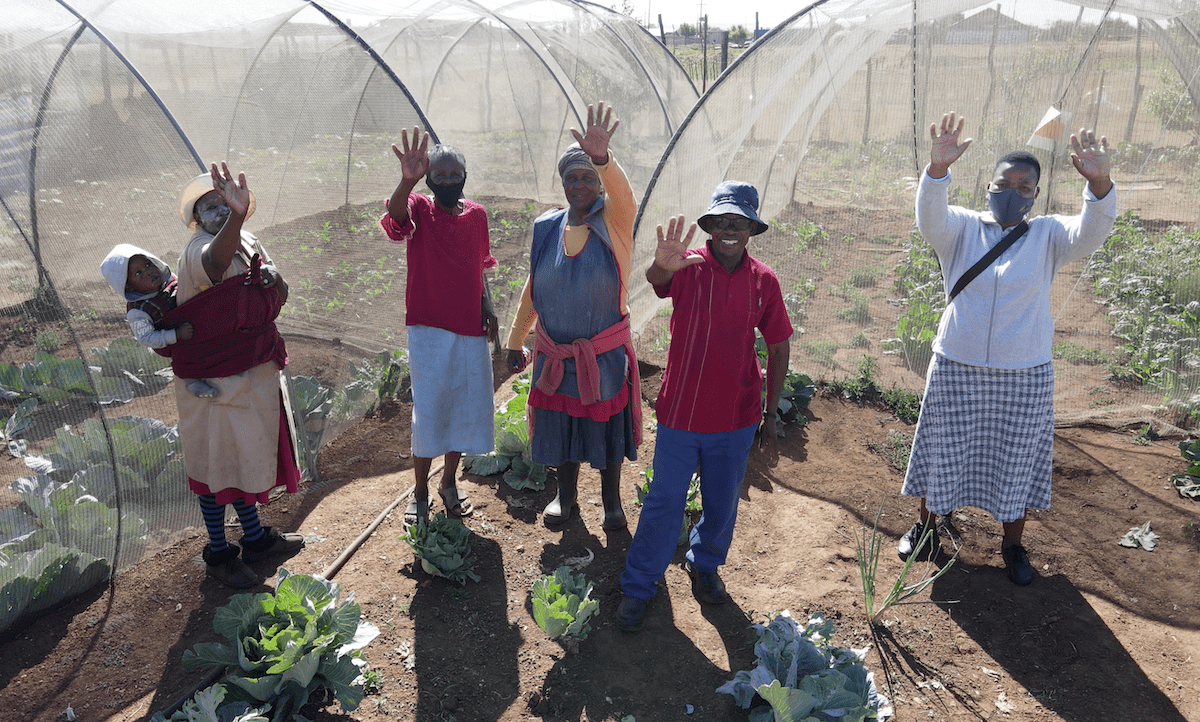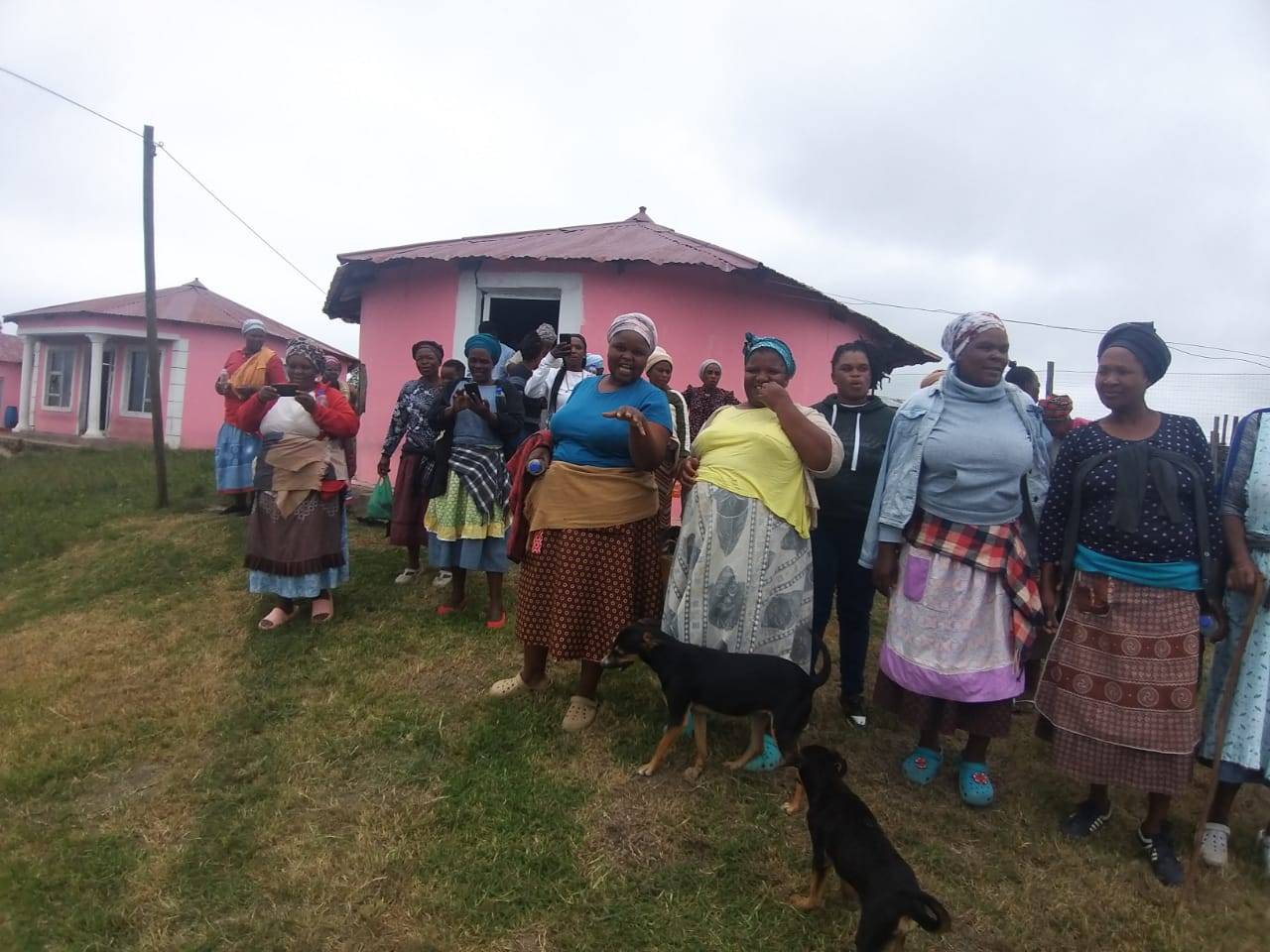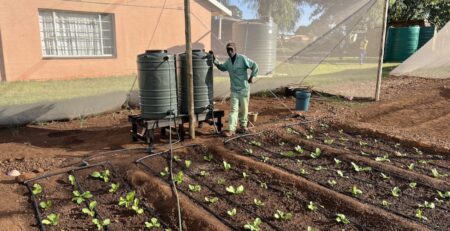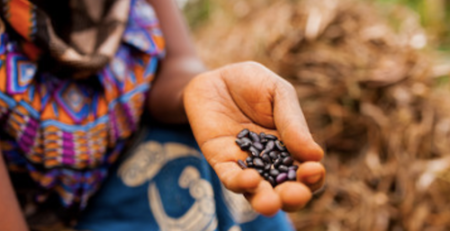Rural development in South Africa
Rural development in South Africa: A Fresh Approach yielding Wildfire Results
Umsizi’s Broad-Based Livelihoods (BBL) Programme has a fresh and timely approach toward rural development. The programme is already empowering households across South Africa. Participants are able to provide subsistence for themselves, and even to begin earning income. The result is true economic empowerment and the socio-economic upliftment of local communities.
Mass-based solutions for mass-based challenges
There is an urgent need for rural development in South Africa. Our nation faces massive and complex developmental challenges. These challenges cry out for innovative solutions. It is a key moment in our history for establishing policy which can adapt to the current socio-economic landscape.
Our developmental challenges include the “Big Bad 5” of:
- Unemployment
- Inequality
- Poverty
- Inequitable access to land
- Unproductive use of land
Existing rural development programmes and policies are welcome and undoubtedly positive in their intentions and goals. But, these have provided only limited relief in addressing the challenges inhibiting effective rural development. The economic landscape has continued to slide towards the negative. South Africa needs fresh thinking. We need solutions at scale which can address the problems – at scale.
The BBL Programme is designed to empower large numbers of people out of poverty into productive economic activities. The programme allows people to begin with whatever limited resources they have at hand. Using these, they can to create their own livelihoods, income, jobs, with no ceiling to how far they can go. The BBL provides diverse empowerment based on horticulture, business tools and personal vision planning.
What makes the BBL so effective?
 Umsizi designed the BBL upon principles that aim to offer an open opportunity to all. The production methods utilised can be taught to anyone else. This has the potential to stimulate unrestricted growth right from the bottom of the socio-economic pyramid.
Umsizi designed the BBL upon principles that aim to offer an open opportunity to all. The production methods utilised can be taught to anyone else. This has the potential to stimulate unrestricted growth right from the bottom of the socio-economic pyramid.
The principles of the BBL are:
1. Open to all.
There are no barriers to entry, and no-one is excluded. Anyone can make a start immediately with whatever limited resources they have available. This is possible anywhere across our provinces, where disadvantaged people live. Participants can take small steps that lead to a far greater cumulative impact. The BBL methods remove barriers to productivity and income generation. The result: true broad-based economic empowerment, land reform and rural development is achieved.
2. Free from dependency.
The BBL is designed to empower people to be self-starters from Day One, with no need for outside support to stay in production. There are no long lead times, or waiting periods for outside finances or help. Only knowledge, training and skills are provided. Participants can now effectively move from poverty to productivity. The focus of the Programme is on self-effort, immediate action and sustainability at all levels.
3. Free to grow.
 The BBL way is to encourage and enable every family to plan when, where and how they want to grow their farming activities. There are no built-in boundaries to growth. There are no limits to diversification into processing and even other types of businesses. Producers who generate income are able to re-invest and expand their ventures. This expansion of efforts drives further cumulative local economic development.
The BBL way is to encourage and enable every family to plan when, where and how they want to grow their farming activities. There are no built-in boundaries to growth. There are no limits to diversification into processing and even other types of businesses. Producers who generate income are able to re-invest and expand their ventures. This expansion of efforts drives further cumulative local economic development.
4. Wildfire development.
The skills taught in the BBL process are freely transferrable. Producers make more producers. The BBL principles spread from community to community as participants tell and teach families and friends. The end result is that more people are empowered from the bottom-up. It starts at the household level, then moves to the community level, and then to the regional level.
Recirculation of money driving greater local economic development
Money in the economy is like blood in the body – it has to circulate to sustain life, and it is bad for health when it leaks out! The economies of our rural villages bleed heavily, all the time. Money flows out of the village as fast as households receive it, as they buy their food and goods from elsewhere.
The BBL approach is to find ways to stop the “bleeding” of money from local villages. The BBL stimulates local circulation of money in every village. It maximises local production of food and goods, and transactions between local residents.
We start with principles of good nutrition and easy, affordable ways to grow high value food. This enables anyone to get a foot in the door to take part in the economy, in land reform and rural development. Rather than looking for suppliers of food, goods, services and land from outside of the community, the BBL participants become the suppliers themselves. This means less money leaving the community and more local spending and supply. Then, when they find outside buyers, this brings more money into and staying in the community. In this way, the BBL becomes a catalyst for substantial local economic development which can empower and uplift entire communities.
The Future of Rural Development
We see this as the future of rural development –empowering individuals and households at the bottom of the socio-economic pyramid to use whatever land and resources that are available to them. Participants begin to make their gardens productive – even a 2m by 4m space beside their house is enough to make a start. In this way, barriers to productivity are removed and participants can be productive right away.
What does the BBL provide?
1. HORTICULTURAL TRAINING
This trains and empowers households to use any amount of available land to grow healthy food. The goal of this is twofold: Firstly, for food security. Any resident who has a sustainable source of healthy nutrition is then free to pursue other productive tasks. Included in the training, participants are taught the fundamentals of balanced nutrition. Secondly, participants become commercial producers generating additional income. Deep trenching, composting and irrigation techniques are covered in full to ensure sustainable, productive gardens.
2. BUSINESS TOOLS
Participants are equipped and developed as producers and entrepreneurs with simple but powerful business tools focussed on record keeping, sales and savings, profit and loss, business expansion and marketing.
3. PERSONAL DEVELOPMENT PLANNING
This powerful programme includes training on the principles of goal setting, ordering of priorities, career path planning, and personal values. The minds of the participants are unlocked to set their visions, goals, priorities, and action plans to fulfil their dreams and bring about their desired future. This encourages “ownership” of their own futures, and is a powerful motivator for good productivity.
The success of the BBL Programme
The programme has produced effective, monitored results based on observable data reflecting local economic development which has taken place.
Umsizi is grateful that the implementation of the BBL has enjoyed so much success. Those results are meaningful, sustainable, true local economic development and empowerment, from the bottom-up; a true work-in-progress to uplift individuals, households, and communities across our land.
